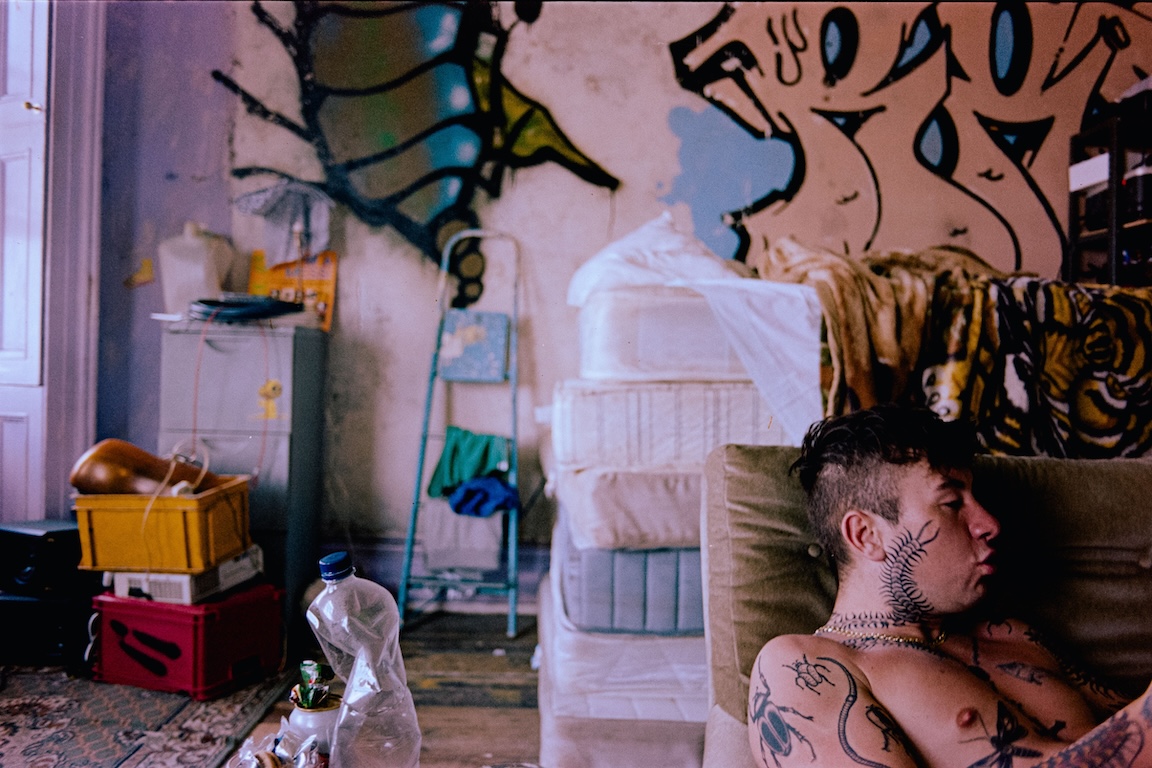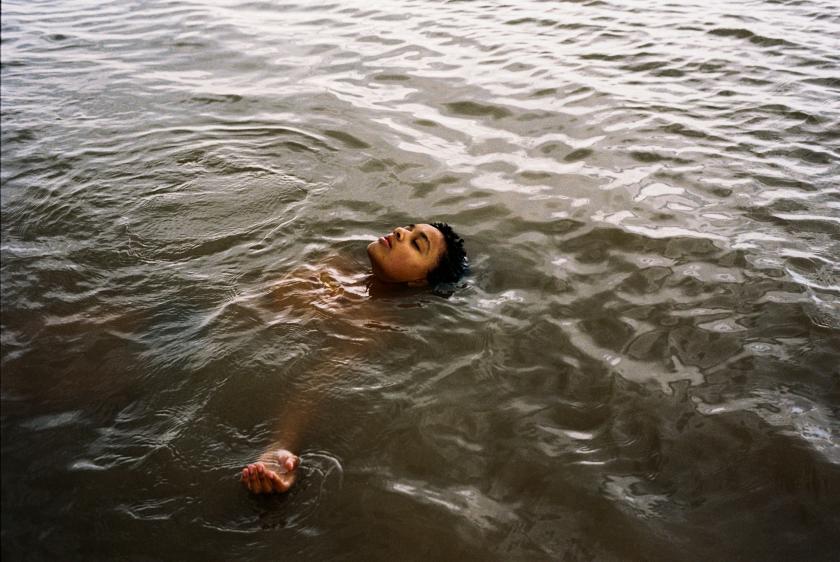There’s a jolt or a surprise in almost every shot in Andrea Arnold’s Bird – her most impacted and energised depiction of underclass life yet. Photographed by Robbie Ryan, it’s a visual tour de force, one of the most exhilarating British films of 2024, but the affecting story it tells is undermined by its fleeting embrace of magical realism and the climactic swoop of a deus ex machina.
Despite these caveats, Arnold remains British cinema’s most trenchant and influential portrayer of neglected, endangered girls and young women living in brutal or inhospitable environments. Claire Oakley’s Make Up, Nathalie Biancheri’s Nocturnal, Sacha Polak’s Silver Haze, and Luna Carmoon’s Hoard are among the films indebted to Arnold’s Fish Tank, Wuthering Heights, and American Honey.
The latter film’s character dynamics inform Bird’s. The romantic relationship of Sasha Lane’s runaway, Star, and Shia La Boeuf’s compelling but unreliable rascal, Jake, in American Honey is retooled in Bird as the relationship between Bailey (Nykika Adams), a sullen 12-year-old on the cusp of womanhood, and her irresponsible, hard-partying dad, Bug (Barry Keoghan). Like Star, Bailey is unseen, easily wounded, and potential prey for abusers. Like Jake, Bug is a charismatic manboy living on his wits on the fringes of society. Whether he’s truly feckless is revealed late on.
Bailey and her brother, Hunter (Jason Buda), live with the heavily tattooed Bug in a heavily graffitied squat in an impoverished town in the Dartford–Gravesend area. Tattoos and graffiti are statements of primitivism and tribalism that can denote working-class defiance of the repressive social order and its conformist codes. But given Bailey’s emotional deprivation, it’s hard not to see the insectoid images on Bug’s body and the squat’s walls as barbed hieroglyphs that expressionistically reflect his daughter’s fear that she’s unwanted. They also suggest malaise. Rendering Bug virtually unemployable, the monstrous inked centipede that extends from his chest to his collarbone and up to his cheekbone (pictured below) looks intent on puncturing and poisoning his right eye.
Bug was 14 when he fathered Hunter; 16 when Bailey came along. (Arnold was the eldest of four born in Dartford to working-class teenage parents and raised by their single mother.) Anticipating a windfall from dealing the hallucination-inducing slime oozed by his newly acquired Colorado River toad, Bug announces to Bailey that he’s marrying his girlfriend (Frankie Box) of three months on the coming Saturday and moving her in with them; oblivious to Bailey’s probable queerness, Bug insists she wear a hideously feminine outfit at the wedding bash. Her Elektra Complex stoked, Bailey revengefully hacks off her voluminous dreads, accentuating her androgyny.
 Bailey and Hunter’s mum, Peyton (Jasmine Johnson) checked out on them years ago. A near-catatonic substance-abuser, she has shacked up with a terrifying misogynist, Skate (James Nelson-Joyce), in a squalid flat above a drug den. Whenever Bailey traipses over there, she’s obliged to take care of her three little siblings and get them away from Skate.
Bailey and Hunter’s mum, Peyton (Jasmine Johnson) checked out on them years ago. A near-catatonic substance-abuser, she has shacked up with a terrifying misogynist, Skate (James Nelson-Joyce), in a squalid flat above a drug den. Whenever Bailey traipses over there, she’s obliged to take care of her three little siblings and get them away from Skate.
Like Billy Casper in Ken Loach’s Kes, Bailey has a talent that's unrecognised by her family – and an interest in birds. Videoing them on her smartphone and projecting the shots on her bedroom wall soothes her. She films, too, the friendly face of a horse and cavorting butterflies. The animal that darts into the movie at its close is one too many.
Arnold treats animals compassionately in her films – the pet spaniel hung by its collar on a fence in Wuthering Heights, the tethered horse cared for by the raped girl in Fish Tank, the foredoomed subject of the documentary Cow. It might be gleaned that Arnold respects beasts more than humans with their capacity for cruelty and degeneracy. The winged insect that harasses the four maternally neglected kids in the writer-director's semi-autobiographical Oscar-winning short Wasp – a key analogue for Bird – is not interested in them but the the residue of the junk food they've eaten.
An aspiring filmmaker, if unaware of it, Bailey uses her phone camera to spy. As inquisitive as Kate Dickie’s CCTV operator in Arnold’s Red Road, she follows and videos the gang (or pack) of feral young vigilantes that Hunter belongs to in north Kent's urban jungle. Bailey's camera also protects her and her sibs: when the odious Skate stumbles from bed and stands unclothed before them, she films him and threatens to incriminate him as a pervert by showing police the footage.
Crossing a field near her home, Bailey chances on a kilted male drifter, Bird (played by the mesmerising German actor Franz Rogowski), whose name reflects his avian qualities – a pigeon-y gaze that might take in everything or nothing, the habit of nocturnally perching on high buildings, a serene aura. (Pictured below: Franz Rogowski)
 Bird has returned to his hometown in search of the birth parents he has never known. His quest, in which he enlists Bailey as they form a tentative friendship, mirrors her quest to be loved and appreciated for who she is by Bug. As Bird learns about his father’s attitude to parenthood, Bailey learns about Bug’s. Arnold tacitly orchestrates these crucially different revelations.
Bird has returned to his hometown in search of the birth parents he has never known. His quest, in which he enlists Bailey as they form a tentative friendship, mirrors her quest to be loved and appreciated for who she is by Bug. As Bird learns about his father’s attitude to parenthood, Bailey learns about Bug’s. Arnold tacitly orchestrates these crucially different revelations.
Dennis Potter’s dramas surely influenced Bird. Bailey has seemingly willed Bird – not quite a father surrogate, but as wise and gentle as Bug is idealistic and ebullient – into existence, just as guilt-ridden, traumatised, or frustrated characters in Potter’s TV plays and films variously summon, in earthly form, angels, the devil, and other agents of repressed desires to commit acts of liberating violence (or sex). That’s exactly what Bird does after he has warned Skate to speak politely to Bailey’s maternal family. The action scene that eliminates the Skate problem is unoriginal, and the style shift that facilitates it is jarring in the context of Arnold’s long career as a realist director, but the outcome is satisfying.
Some parental love does come Bailey’s way, but unlike most coming-of-age films, Bird leaves its protagonist in limbo. Toward the end, she makes a concession to Bug that can be interpreted as a compromise of her barely formed identity, or as a gesture of good will to him. This ambiguity works: nothing is resolvable when you’re newly pubescent.
Newcomer Adams makes Bailey a wary, stubborn kid appalled by adult iniquity and decadence, but one who’s goaded into saving her clan through a criminal act. Her quiet, watchful presence keeps us clinging to Bailey’s troubled journey in the face of Rogowski’s strangeness and Keoghan’s flamboyance.
As he was in Saltburn, Keoghan is magnetic in Bird, but his unbridled performance flirts with shtick. Arnold indulged or encouraged him to quote from his triumphalist dance to “Murder on the Dancefloor” in Emerald Fennell’s smug class satire – though he isn’t naked this time. The intertextual homage makes you smile, but at a cost to suspension of disbelief. The raw, unforgiving world of Arnold’s movies and the struggles of their girls and women to survive are too truthful to admit self-conscious nods to lesser films.
- More film reviews on theartsdesk















Add comment